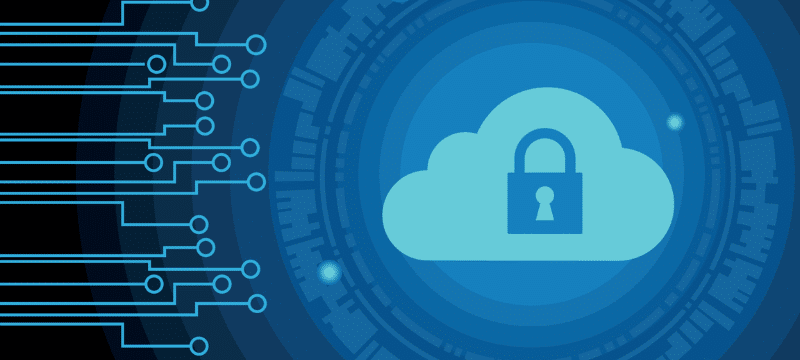Threat Detected: AI-Driven Security for Your VPS
Developers

Cloud-based Virtual Private Servers (VPS) excel at providing flexible and scalable hosting for businesses and individuals. But as cyber threats continue to evolve with relentless sophistication in the cloud, traditional security measures powered by humans are no longer enough to safeguard against attacks. Fortunately, the field of cybersecurity has gotten a major upgrade in the last couple of years, as AI emerges as a powerful tool to help strengthen cloud security platforms.
AI acts like an advanced security system that can actually predict the criminal’s next move. Its advanced capabilities can detect, analyze, and even respond to cyber threats efficiently. AI can revolutionize your VPS’s security, giving you a more robust defense mechanism against cyber vulnerabilities.
How Does AI Work to Protect Data?
Artificial Intelligence (AI) has transformed cybersecurity, with the power of intelligent systems that can learn and evolve to counteract a wide range of cyber threats. Unlike traditional security measures that rely on static databases of known threats, AI can study patterns in huge amounts of data and spot anything out of the ordinary. This gives it the power to predict potential attacks before they occur, making AI the perfect bodyguard for your virtual private cloud, which host many different services and need extra protection.
With AI on duty around the clock, your servers receive continuous monitoring, automated threat detection, and swift incident response if anything fishy is going on.
Why Should You Use AI in Your VPS Security Strategy?
Enhancing your VPS’s defenses with AI is a game-changer in the battle against cyber attacks. This cutting-edge technology fortifies your virtual hosting environment with advanced capabilities that significantly bolster defenses against cyber threats.
- Rapid Response: One of AI’s biggest strengths is its ability to detect threats in real-time. AI’s real-time threat detection capabilities continuously monitor your servers and can immediately flag suspicious activities. This enables an instant response to neutralize threats before damage occurs.
- Accelerated Evolution: Cyber attackers are constantly evolving their methods, so your defenses need to evolve just as quickly. AI systems learn and adapt autonomously through machine learning, much more quickly than manual updates could achieve. Each new threat extends their knowledge, allowing AI defenses to stay agile against emerging tactics.
- Data Driven: Imagine having a digital detective who can analyze huge pools of server data for patterns and anomalies that might expose a security hole. That’s the power of AI’s ability to comb through vast data sets, spotting signs of compromise that humans could easily miss.
- Predictive Power: More than just reacting, AI can also forecast future threats. Think of it as threat prediction software that not only learns from current data and past incidents but can extrapolate what’s coming next, enabling proactive security measures.
What are the Best Practices for Implementing AI in my VPS Security?
Implementing AI in VPS security is a strategic process that involves careful planning and consideration. The first step is choosing the right security solutions tailored to the specific needs of your VPS server and what you’re running on it. Make sure your security tech offers comprehensive coverage, including threat detection, incident response, and predictive analytics.
Once you’ve got your tech lined up, it’s time for the integration process. You’ll need to configure the AI system to work seamlessly with existing security protocols, with no weak spots. This step may require a professional consult. Your tech team also needs to learn how to effectively manage the AI system and quickly act on any threats it detects.
The Risks of Using AI
While having AI working as a cybersecurity guard for your servers is awesome, there are some potential risks to be aware of. It’s kind of like training your pet to be a guard dog – you need to do it properly.
One issue is the possibility of false alarms. An overly sensitive AI might bark warnings at every little thing, even when there’s no real threat. Too many false alarms, and you might start ignoring the warnings when there actually is danger. Ensuring the AI system is finely tuned and leveraging high-quality data for learning can keep this from happening.
Another challenge is that sneaky hackers could try to outsmart or bypass the AI’s defenses. They might study how the AI works, its patterns, and weaknesses, and then try to fool it. To stay ahead, you need to continuously train and update the AI with new tricks.
Privacy and ethical considerations also come into play, especially with AI systems that process large volumes of data. You need to make sure it’s not looking at anything it shouldn’t, and that sensitive info stays protected.
While AI is an amazing security tool, you can’t just set it loose without practicing responsible “AI training.” With the proper precautions and protocols in place, your AI cyber defenses will stay sharp and effective.
AI: Just One Part of the Picture
While AI is crucial in enhancing security for your virtual private cloud, it should be part of a broader security strategy that includes traditional best practices.
- Regular updates and patch management are essential to protect against vulnerabilities.
- Secure configurations, strong password policies, and two-factor authentication add additional layers of security.
- Educating users on security awareness is also vital, as human error remains a significant risk factor.
- Implementing firewalls and intrusion detection systems provides further protection, monitoring, and mitigating potential threats.
Conclusion
Integrating AI into VPS security can significantly bolster your fight against cyber threats. However, setting up AI security isn’t as simple as installing an app. It takes careful planning and management and may require professional advice and assistance. And it’s not a plug-and-play solution. It must be used in tandem with other standard security practices.
But as hackers get more wiley, AI can act as a core part of your VPS’s defense plan. It’s a good way to ensure your digital assets are protected in an increasingly volatile cyber landscape.


